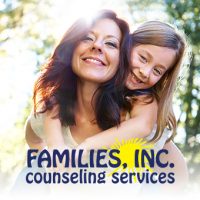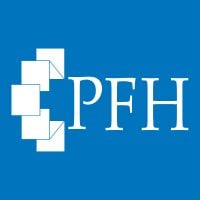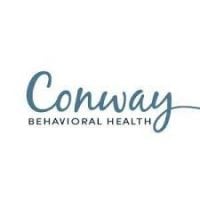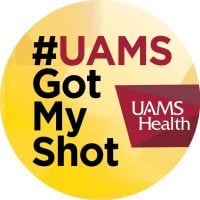Families of Arkansas - Searcy Clinical Office
Drug Rehab Center in Searcy, Arkansas
Families of Arkansas - Searcy Clinical Office is a medical facility that offers inpatient and outpatient substance abuse treatment and mental health services with a focus on treating the whole person and providing recovery support services.
About
Families of Arkansas - Searcy Clinical Office is an Addiction Treatment Facility located in Searcy, Arkansas. While the specific founding year is not provided, it has been in operation since 2000. This facility focuses primarily on treating individuals suffering from mental health issues and addiction. Families of Arkansas - Searcy Clinical Office offers outpatient levels of care, allowing patients to receive treatment while maintaining their daily routines and responsibilities. They accept private health insurance as a means of payment and are affiliated with Families of Arkansas, emphasizing their commitment to providing comprehensive and specialized care for individuals in need.
Families of Arkansas - Searcy Clinical Office offers a range of services for addiction and substance abuse treatment using various methods tailored to each patient's needs. Their experienced specialists provide therapy sessions aimed at addressing the complex relationship between mental health issues and addiction. Through counseling, patients have the opportunity to explore underlying emotional factors contributing to their substance abuse and develop healthier coping mechanisms. The facility emphasizes an individualized approach, incorporating group therapy sessions to encourage peer support and the sharing of experiences. Families of Arkansas - Searcy Clinical Office also provides education on addiction prevention and relapse prevention techniques to help patients develop skills necessary for long-term recovery.
Genders
Ages
Modality
Additional
Conditions and Issues Treated
Levels of Care Offered
This center offers a variety of custom treatment tailored to individual recovery. Currently available are Outpatient, with additional therapies available as listed below.
An outpatient treatment program is set up to help with alcohol or drug addiction or a co-occurring disorder. The treatment must attend the treatment facility for their therapy and other programs but return home each night. The frequency of mandatory attendance decreases after much of the treatment program is complete. The treatment programs are monitored by the treatment facility and case managers who work for a judge or judge’s office. A treatment program may be performed out of a treatment facility, treatment clinic, or treatment center.
The benefits of outpatient treatment programs are many. One of the most beneficial treatment programs is that it allows treatment for clients who cannot afford or may not be able to attend treatment at a treatment facility, treatment center, or treatment clinic full-time. Another benefit of treatment programs is that they reduce crime rates because treatment allows people to treat their addiction.
Therapies & Programs
Individualized Treatment is essential because it gives addicts the ability to participate in a program that meets their unique needs. An addict should work with professionals who understand what they’re going through, especially if the addict is actively using. Finding the right treatment program for an addict is difficult, but it’s even harder without communicating with those who have experience treating your specific situation.
Couples therapy is a treatment approach where the patients and their partners are engaged together. When a person becomes a victim of substance abuse, it affects the patient and his people, particularly his partner. Their relationship can become strained due to lack of communication, financial issues, loss of trust, lack of intimacy, and physical abuse in more severe cases. Couples therapy addresses these issues and tries to rebuild the trust between the partners. The partner’s involvement in the process will result in greater chances of treatment success and sustained recovery.
The therapies typically involve all family members, potentially including siblings, children, and parents who play a role in their daily lives. These sessions can be essential because they address past issues that may have affected an addict or alcoholic’s recovery process. They provide support during this time when it is needed most!
A family therapy session, often called a family meeting or intervention, is a necessary process that helps loved ones of addicts see their situation in a new light. It’s also one of the most challenging things families will ever have to do when they’re facing a loved one battling addiction or alcoholism.
Group therapy sessions provide recovering addicts with a chance to cope with everyday situations that many face. Group therapy sessions are held in rehab facilities, clinics, churches or community centers that offer drug addiction treatment.
People who attend these groups are encouraged to voice their feelings and support other addicts in recovery. This helps group members strengthen their own recovery program while cheering on others who are struggling with sobriety.
Dialectical behavior therapy, or DBT, is one form of cognitive behavioral treatment. This type of therapy typically involves both individual and group sessions with a therapist on a regular basis.
It uses concepts like mindfulness training to help addicts learn how to identify their thoughts, feelings, behaviors and the experiences that trigger them so they can avoid relapse. DBT also teaches addicts how to regulate their emotions, which can make it easier for them to avoid or overcome negative thoughts and cravings.
Cognitive Behavioral Therapy (CBT) is a highly effective treatment option based on the idea that how we feel, think and act all interact together. Our thoughts determine our feelings and behaviors; our feelings affect our thoughts, and our behaviors change our thoughts and feelings. CBT helps people explore their thoughts for problems (or false beliefs) that influence their mood and actions. By examining their thoughts and beliefs, people can recognize distorted or irrational and modify them to more realistic, positive ones. CBT is very goal-oriented, which means that the therapist and patient work together on a specific problem while learning to become more adept at solving future problems.
CBT works well with a broad range of people, including those with depression, anxiety disorders, eating disorders, and problems with anger. In addition to helping a client focus on thoughts that can be changed, CBT also allows them to take an active role in their treatment. This is called a collaborative approach because both patient and therapist work together to produce the best possible results.
CBT is based on cognitive learning theory, which says that our behavior is a learned response to our environment. Cognitive refers to thoughts and beliefs, while behavioral relates to actions or deeds. CBT helps people learn ways of behaving to improve their quality of life by focusing on specific problems or goals they want to achieve. Sometimes, CBT is used alone; other times, it is combined with medications or brief counseling techniques such as solution-focused and motivational interviewing to achieve optimal results for the patient.
Patient Experience
Experiential Therapy at Families of Arkansas - Searcy Clinical Office
Drug addicts can benefit from experiential therapy, which involves real-time activities to process trauma and emotions. This type of therapy is available at Families of Arkansas - Searcy Clinical Office and can help reduce the need to resort to drugs and alcohol. Activities may include role-playing, use of props, and others. The individual learns to release suppressed thoughts that lead to negative feelings and embrace the present moment. Experiential therapy is beneficial in treating various disorders, including drug addiction, eating, and behavioral disorders.
Payment Options Accepted
For specific insurance or payment methods please contact us.
Is your insurance accepted?
Ask an expert, call (888) 674-0062
Families of Arkansas Associated Centers
Discover treatment facilities under the same provider.
- Families Counseling Services - Paragould in Paragould, AR
- Families of Arkansas - Mountain Home Clinical Office in Mountain Home, AR
- Families of Arkansas - Pocahontas Clinical Office in Pocahontas, AR
- Families of Arkansas - Paragould Clinical Office in Paragould, AR
- Families of Arkansas - Piggott Clinical Office in Piggott, AR
Learn More About Families of Arkansas Centers
Additional Details
Specifics, location, and helpful extra information.
Searcy, Arkansas 72143 Phone Number(501) 305-2359 Meta DetailsUpdated November 25, 2023
Staff Verified
Patient Reviews
There are no reviews yet. Be the first one to write one.
Searcy, Arkansas Addiction Information
Arkansas has one of the highest rates of substance abuse and addiction in the nation for drug overdoses. Methamphetamines and prescription opioids are by far the most widely abused drugs in the state. Despite the high rates, Arkansas ranked only 25th in the for drug overdose deaths in 2013.
An estimated 4.5% of high school seniors in Searcy, Arkansas were current non-medical users of pain relievers. Almost 15% of high school seniors admitted to binge drinking, which reflects a serious alcohol abuse problem. About 37.6% of people who need treatment don't get it. Common treatments in Searcy include inpatient, outpatient programs, 12-step programs, and behavioral therapy. It is important to find a treatment program that will best meet the individual's needs.
Treatment in Nearby Cities
- Gassville, AR (83.6 mi.)
- Tucker, AR (57.3 mi.)
- Morrilton, AR (58.3 mi.)
- Piggott, AR (116.2 mi.)
- Marion, AR (86.1 mi.)
Centers near Families of Arkansas - Searcy Clinical Office
The facility name, logo and brand are the property and registered trademarks of Families of Arkansas - Searcy Clinical Office, and are being used for identification and informational purposes only. Use of these names, logos and brands shall not imply endorsement. RehabNow.org is not affiliated with or sponsored by Families of Arkansas - Searcy Clinical Office.









